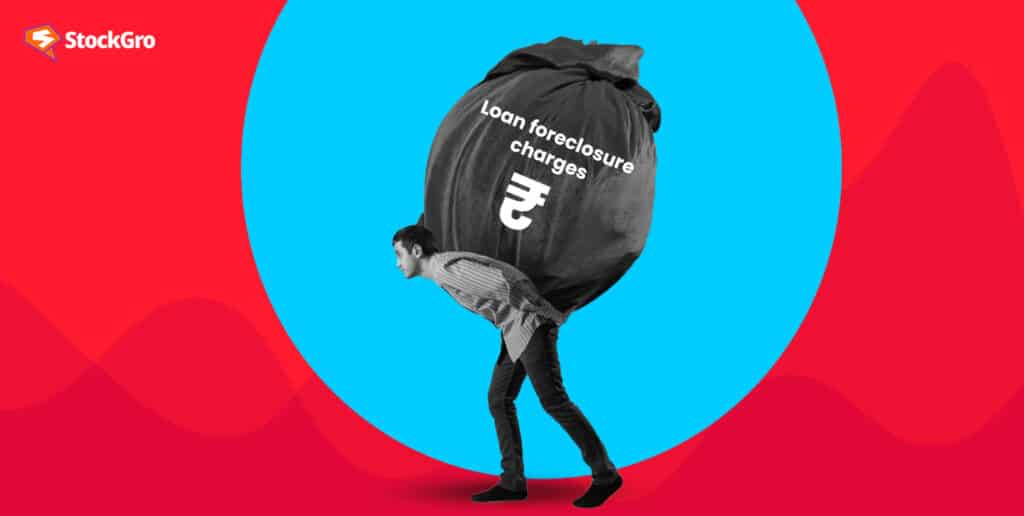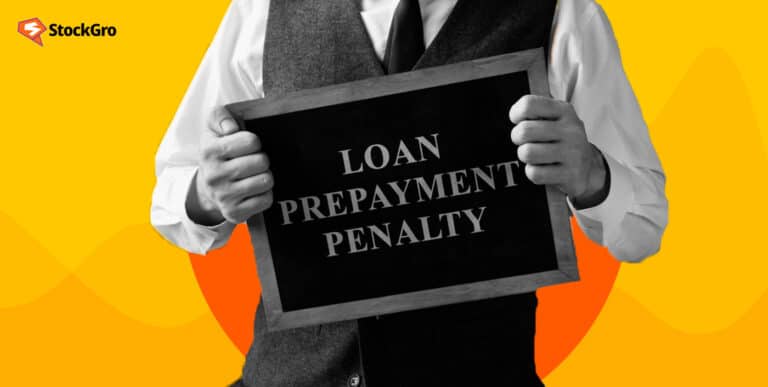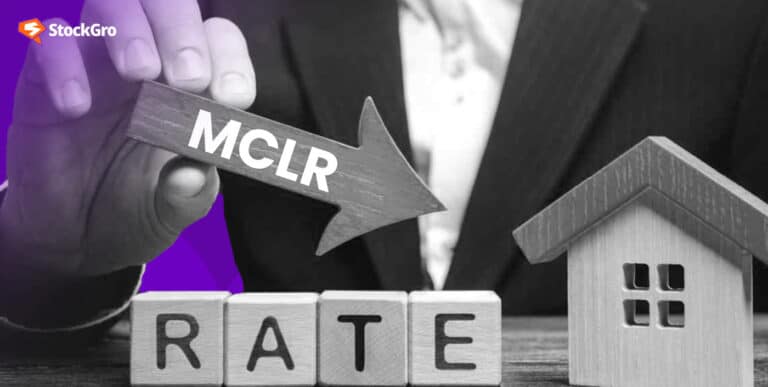
Many people’s financial lives have been saved by personal loans, which provide the flexibility to handle unforeseen expenses or finance significant life events. However, like with any other type of financial product, there are fees and regulations associated with them, including the personal loan foreclosure charge.
When a personal loan is repaid in full, in one lump sum, prior to the loan’s maturity date, this is known as foreclosure. While this may seem like a good way to get out of debt faster, you should know that lenders usually charge a fee for this service, called the foreclosure charge.
Gaining a grasp of these fees allows you to be mindful of the expenditures and make educated choices that can ultimately result in cost savings.
To help you better understand this sometimes-overlooked element of personal loans, we have broken down the specifics of personal loan foreclosure charges in India in this article.
What is foreclosure in personal loans?
Foreclosure in personal loans is the early repayment of the entire outstanding loan amount before the agreed-upon loan term expires. It gives people the option to pay off their loans earlier than they had planned. Not to be confused with prepayment, which entails paying off a portion of the loan ahead of schedule.
Personal loan without foreclosure charges
After the initial lock-in period ends, usually after 12 or more equated monthly instalments (EMIs), zero foreclosure charges for personal loans apply. Different lenders have different lock-in periods.
Benefits of foreclosure:
While personal loan foreclosure charges may seem like an additional expense, there are several benefits to prepaying personal loans. Some of the key advantages include:
- Interest savings: By closing the loan early, borrowers can save a significant amount on interest payments, reducing the overall cost of the loan.
- Improved credit score: The ability to close a personal loan shows that you are responsible with money and can have a positive effect on your credit score.
- Financial freedom: Being free of debt can liberate borrowers financially, letting them put their resources towards other objectives and costs.
Borrowers can make well-informed decisions regarding prepaying their personal loans by weighing these benefits against the foreclosure charges.
Also read: Unlocking prosperity: The transformative power of financial literacy
What are the foreclosure charges in personal loans?
In India, the Reserve Bank of India (RBI) has set guidelines for foreclosure charges on personal loans to protect the interests of borrowers. According to these guidelines, banks and financial institutions can charge foreclosure fees, but they must be reasonable and not excessive. The charges should also be disclosed to borrowers upfront, ensuring lending process transparency.
It is worth noting that while personal loan foreclosure charges are regulated, the specific charges imposed can vary from lender to lender. Hence, to comprehend the precise fees associated with your personal loan, it is essential to study the loan agreement thoroughly and communicate with the lender. By doing so, borrowers can avoid any surprises and make well-informed decisions.
Factors affecting foreclosure charges
Several factors can influence the foreclosure charges imposed by lenders. To better prepare for and estimate any fees that may be due, borrowers should familiarise themselves with these factors.
Here are a few important factors that can affect foreclosure charges:
- Loan tenure: The loan’s remaining tenure at the time of foreclosure can affect the charges. Typically, the longer the remaining tenure, the higher the foreclosure charges.
- Interest rate: The rate of interest at which the loan was taken out is another factor that can affect the costs associated with foreclosure. Higher interest rates may lead to higher charges, while lower rates may result in more favourable charges.
- Loan amount: Lenders also take the amount of the loan that is still outstanding into account when they calculate the foreclosure charges. Generally, a higher loan amount can result in higher charges.
- Type of loan: Personal loans, such as secured and unsecured, may have varying foreclosure charges. Secured loans, backed by collateral, may have lower charges than unsecured loans.
Borrowers can make better judgements regarding their personal loans and their estimated potential foreclosure charges if they are aware of these factors.
How to calculate foreclosure charges?
Calculating personal loan foreclosure charges can seem complex, but it’s essential to have a clear understanding of the process to avoid any surprises. While the exact calculation methods can vary between lenders, there are some general guidelines to keep in mind.
Foreclosure fees are typically determined by the loan’s remaining term and the amount of principal owed. To calculate the charges, multiply the outstanding principal by the percentage charge imposed by the lender.
For example, let’s say you have an outstanding principal amount of ₹500,000 on your personal loan, and the lender charges 3% as foreclosure fees. The calculation would be as follows:
Foreclosure Charges = ₹500,000 * 3% = ₹15,000
Keep in mind that this is only an example and that your actual charges may vary based on your loan’s terms and conditions.
Also read: Understanding depository charges in the world of investment
Tips to minimise foreclosure charges
While personal loan foreclosure charges are inevitable in most cases, there are strategies borrowers can employ to minimise these charges. Consider the following tips:
- Read the loan agreement: To learn about foreclosure fees and other prepayment terms, read your loan agreement carefully.
- Negotiate with your lender: Lenders’ willingness to negotiate foreclosure charges varies from case to case. If you have always paid your bills on time, you may be able to get the charges waived or reduced.
- Plan your prepayment: Before making any prepayments, carefully analyse your financial situation. Consider factors such as interest savings versus foreclosure charges to determine the optimal amount to prepay.
- Compare lenders: If you’re considering refinancing your personal loan, compare lenders to find one with more favourable foreclosure charges. Remember to also include any additional fees or charges that may be incurred during the refinancing process.
By following these tips, borrowers can minimise the impact of foreclosure charges and make the most cost-effective decisions regarding their personal loans.
Alternatives to foreclosure:
Foreclosing a personal loan may not always be the best option for borrowers, especially if the foreclosure charges are substantial. In such cases, exploring alternative strategies can offer more financial flexibility. Here are a few alternatives to consider:
- Partial prepayment: Instead of fully foreclosing the loan, borrowers can make partial prepayments. This can alleviate some of the principal and interest that is still due without having to worry about having to pay exorbitant foreclosure fees.
- Balance transfer: If borrowers find more favourable terms and conditions with another lender, they can opt for a balance transfer. This involves transferring the outstanding loan amount to a new lender, potentially with lower foreclosure charges or better interest rates.
- Investment opportunities: In some cases, borrowers may have investment opportunities that offer higher returns than the interest charged on their personal loans. Instead of foreclosing the loan, they can consider investing the surplus funds and continue making regular loan repayments.
By considering these options, borrowers can make well-informed choices that help them achieve their financial objectives while reducing the severity of foreclosure charges.
Also read: Debt management: Advanced strategies for paying off debt quickly
Bottomline
In the financial journey of life, personal loans can be both a boon and a bane. While they provide much-needed financial aid in times of need, the various charges associated with them, like the foreclosure charges, can often seem like a maze. Rest assured, there is always an exit from any maze.
With a clear understanding of these charges and strategic planning, you can navigate this maze successfully. So, the next time you consider foreclosing your personal loan, remember – knowledge is power. You can improve the quality of your financial decisions with more knowledge. Here’s to smart borrowing and smarter repayments!

